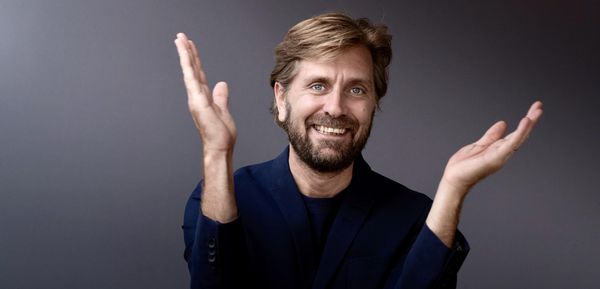 |
| Delighted Triangle Of Sadness director Ruben Östlund named president of this year’s Cannes Film Festival jury. Photo: Courtesy of Cannes Film Festival |
Fifty years after fellow citizen Ingrid Bergman performed a similar role, Östlund said: “I am happy, proud, and humbled to be trusted with the honour of Jury president for this year's Competition at the Festival de Cannes.
"Nowhere in the film world is the anticipation as strong as when the curtain rises on the films in competition at the festival. It is a privilege to be part of it, together with the Cannes audience of connoisseurs. I am sincere when I say that cinema culture is in its most important period ever.
"The cinema has a unique aspect - there, we watch together, and it demands more on what is shown and increases the intensity of the experience. It makes us reflect in a different way than when we dopamine scroll in front of the individual screens.”
With a body of work comprising only six features, the filmmaker was already selected twice at Un Certain Regard, where he was awarded the Jury Prize in 2014, before later entering the Competition. The Palme d’Or was awarded to him twice; first for The Square at the 70th edition of the festival, and then for his next film acclaimed last year, Triangle Of Sadness.
After studying cinema in Gothenburg, he directed his first feature film, The Guitar Mongoloid, in 2004. On the edge of the documentary genre, the film describes the intersecting destinies of outcasts in a fictional city that closely resembles Gothenburg. The way he uses humour as a tool of sociological description was already apparent.
His next short film, Autobiographical Scene Number 6882, gathers all the ingredients of his future work, which are affirmed in Involuntary, a feature film selected at Un Certain Regard in 2008. Östlund positions the camera at a relevant distance to better observe human behaviour: small weaknesses and major flaws caused by group dynamics are then dissected to the point of discomfort.
Two years later, Incident By A Bank won the Golden Bear for best short film at the 60th Berlin Film Festival - it examines the reactions of passers-by to a bank robbery. His third feature film, Play, which was presented at the Directors' Fortnight in Cannes in 2011, describes harassment between youth gangs. When it was released in Sweden it gave rise to a major debate across Swedish society.
In Force Majeure, which was screened at Un Certain Regard in 2014, the situation takes on the aspect of an avalanche where a father prefers to take cover rather than save his wife and children: how can he accept the aftermath, in bad faith and in fear of losing face?
A media release from the festival suggests that Östlund repeatedly explores a provocative dialectic which has become his signature: an initial situation sets the stage for a sociological examination where the baser instincts of our humanity are painstakingly and uncompromisingly examined with corrosive humour.
In 2017, in The Square, he tells the fictional story of an artistic experiment he conducted in his native country. The film addresses brilliantly the boundaries of public space, art and the animal aspects within ourselves.
Finally, in 2022, Triangle of Sadness chronicles a cruise ship caught in a storm that reshuffles the cards of class struggle in Western societies in a nauseating hullabaloo.
The festival organisers said: “By inviting Ruben Östlund to preside over the Jury, the Festival de Cannes wishes to pay a tribute to films that are uncompromising and forthright and which constantly demand that viewers challenge themselves and that art continue to invent itself."
He will be the third two-time winner of the Palme d’or to be the president of the jury, following Francis Ford Coppola and Emir Kusturica, and the first to take on this role the year after his acclaim in Cannes.
Östlund concluded: "As president I will remind my colleagues in the jury about the social function of the cinema. A good movie relates to the collective experience, stimulates us to think and makes us want to discuss what we have seen.”





















